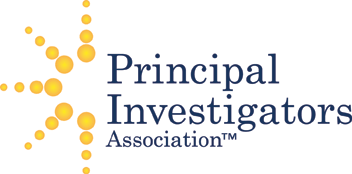|
|
Research Lab Management Challenges and Solutions
Lab management challenges can come in many forms — from disruptive and manipulating staff to slow performers and low productivity. Yet in many cases, your own management style could be the culprit behind an unhappy team — without you realizing it. As a PI, identifying potential problems in your lab early on is only half the battle. Knowing how to handle these challenges and having the tools necessary to properly resolve them can make all the difference.
Inside this 24-pg. special report, you will get answers to these every day lab management questions, among others:
- How can I address dysfunction and consistently run a productive lab with a happy staff?
- Is my management style intimidating my staff?
- If everyone’s quietly doing their job and there are no apparent conflicts, everything’s fine. Right?
- One of my talented post-docs has an answer for everything – how can I get through to him?
- Two of my staff members are “avoiding” each other; how can I resolve this problem?
- And much more!
|
|
|
Intellectual Property & Patents
How do you go from a discovery in your laboratory to intellectual property (IP) on a balance sheet? It’s trickier than many would guess.
A scientist might assume something isn’t IP when it very well might be, or just the reverse.
If you are concerned about creating and protecting IP, this 55+ pg. Special Report — “Intellectual Property & Patents: Vital Facts Every PI Needs to Know” — is a treasure chest of tips, tactics and advice you simply can’t ignore.
Inside this executive report you will get answers to these every day questions, among others:
- Who Owns the Data Collected by a PI Over Many Years?
- Can PI Win Co-Author Credit Based on Ignored Verbal Agreement?
- My Electronic Data: Is It Credible Enough to Serve as Proof of Invention?
- It’s My Invention; Shouldn’t My Name Go on the Patent Application?
- Can a Social Media Message Be “Disclosure” That Torpedos Your Patent Application?, And many more!
|
|
|

Research Paper Authorship: Expert Comments on Vexing Questions
Experts generally agree that the decision on when to get your results into print should be driven by the science — not simply your desire to see your name in the high-end journals as often as possible.
For this 35-pg special report, our editors have selected for you the most helpful authorship-related items that appeared in the pages of Principal Investigator Advisor monthly eNewsletter. This unique assembly is a treasure chest of tips, tactics and advice for any investigator concerned with author order, publishing and plagiarism.
Find answers to these every day questions:
- Are You Ready to Publish? Factors to Help You Decide
- How Many Papers Should a PI Publish Each Year?
- What to Do About Unwanted Inclusion as a Co-Author?
- What’s the Dividing Line Between ‘‘Fair Use’’ and Plagiarism?, And More!
|
|
|

Expert Advice on 17 Challenges in Assuring Laboratory Animal Welfare
If you’re involved in, or concerned with, the proper treatment of laboratory animals, these tips, tactics and advice will help you bolster your compliance with pertinent rules and regulations. This executive report focuses on these critical animal-welfare issues—care, handling and research.
Inside this 46-pg. report, you’ll find answers to troublesome, real-world situations including:
- Dealing with aggressive behavior
- Verifying rodent health accurately
- Managing pain and the potential need for euthanasia
- Determining whether research can continue when an animal is injured
- And much more!
|
|
BONUS! 60-Minute Webinar:
How to Build an Effective Lab Team Communication Environment
This team-driven Webinar will examine the characteristics of supportive and defensive communication environments as well as how specific communication behaviors impact clinical research team function.
Drawing from her experiences as a clinical research lab supervisor and communication scholar, your expert presenter will give you real-life examples to study how group dynamics can influence the communication environment and overall team productivity.
5 Key Take-Aways:
- Clearly identify the main differences between defensive and supportive communication environments
- Step-by-step guidance for building a supportive communication environment—why you shouldn’t wait until you are faced with a team crisis
- Real-life examples to help you boost team productivity
- Proven strategies for handling conflict in research teams—best practices revealed
- Understand the communication behaviors that are helpful to collaboration—and how to encourage these effectively
|
|
|
BONUS! 60-Minute Webinar:
Motivating Scientists: Best Practices in Leading People
Getting the most out of your staff is critical to your research.
Developing, and maintaining, a high level of motivation in your lab is critical to your research success. Don’t let laziness, overwhelming egos, and troublesome scientists get in the way. Learn how to lead with confidence and get the most out of your research project.
You are the leader. It is time for more effective leadership!
Your lab will, at some point, get thrown into turmoil. Personality conflicts will undermine teamwork, discrimination will isolate group members, and the creativity essential to great work will vanish. Effective leadership will make your research a success. Are you prepared?
Walk away with evidence-based best practices.
We’ve teamed up with author Alice Sapienza to give you first-hand case studies and best practices from the lab. Alice has written extensively on the topic and knows exactly the frustration you’re experiencing, and will offer proven methods to motivate your scientists.
|


